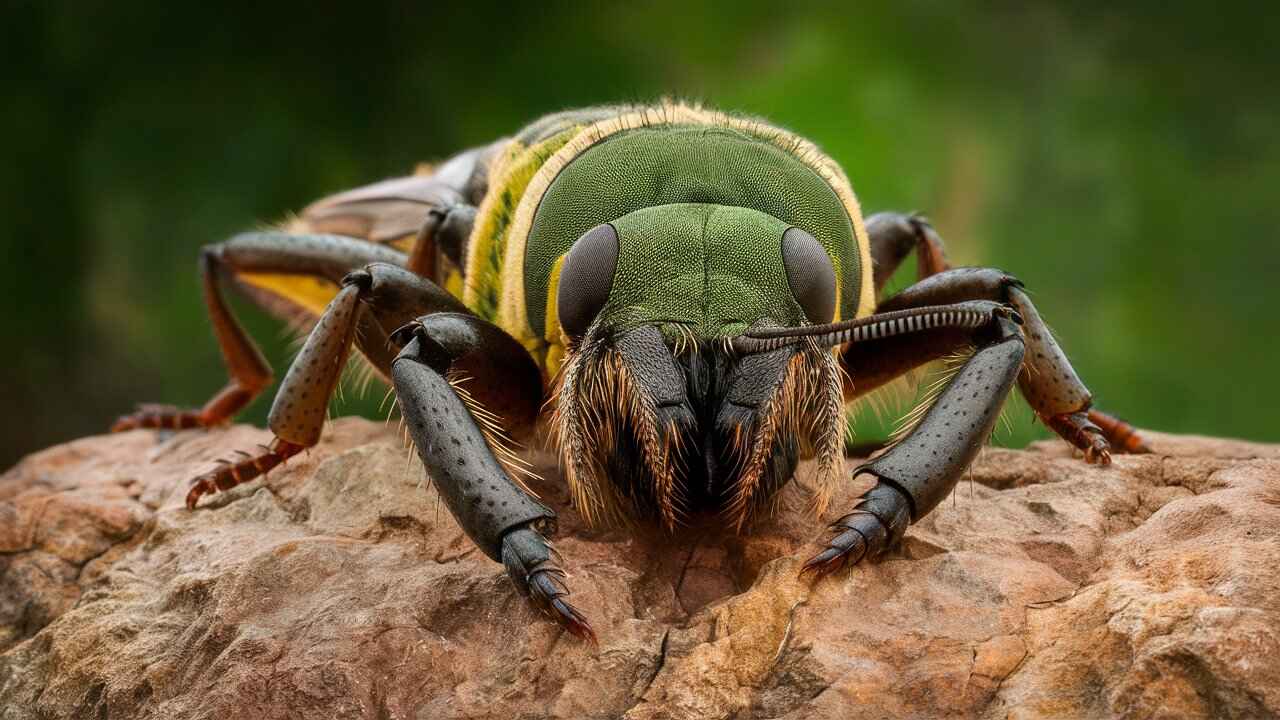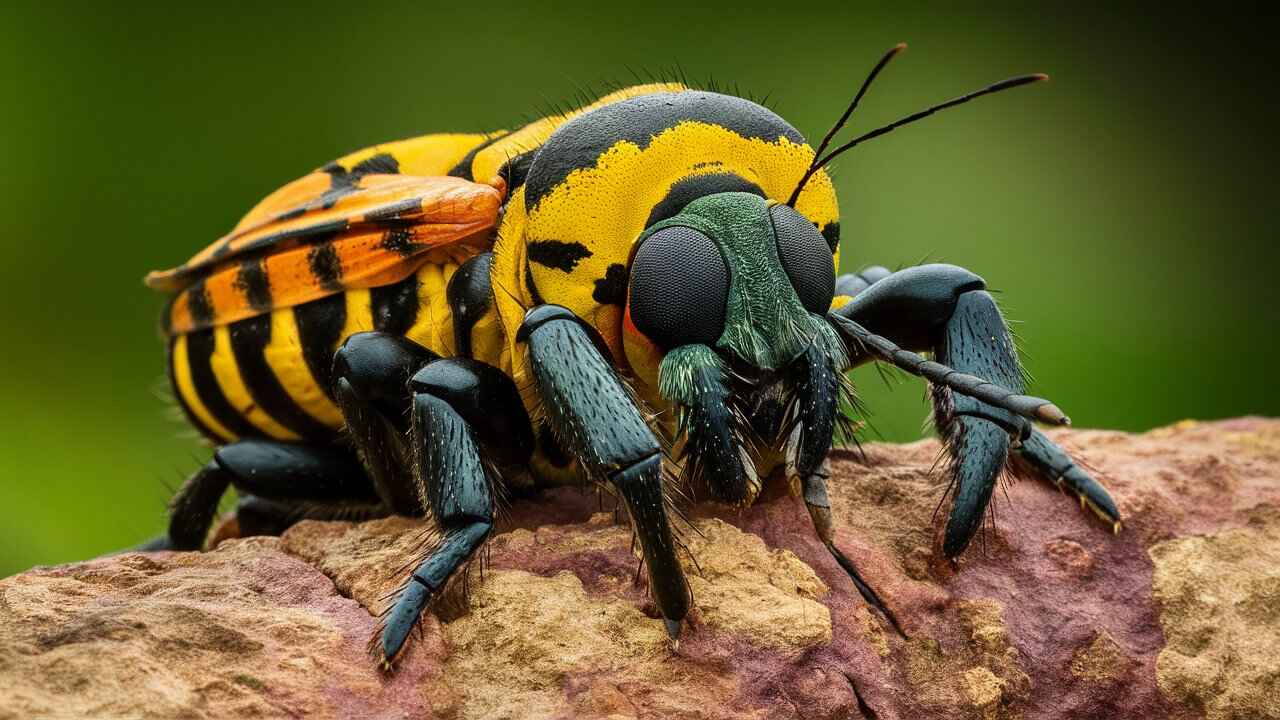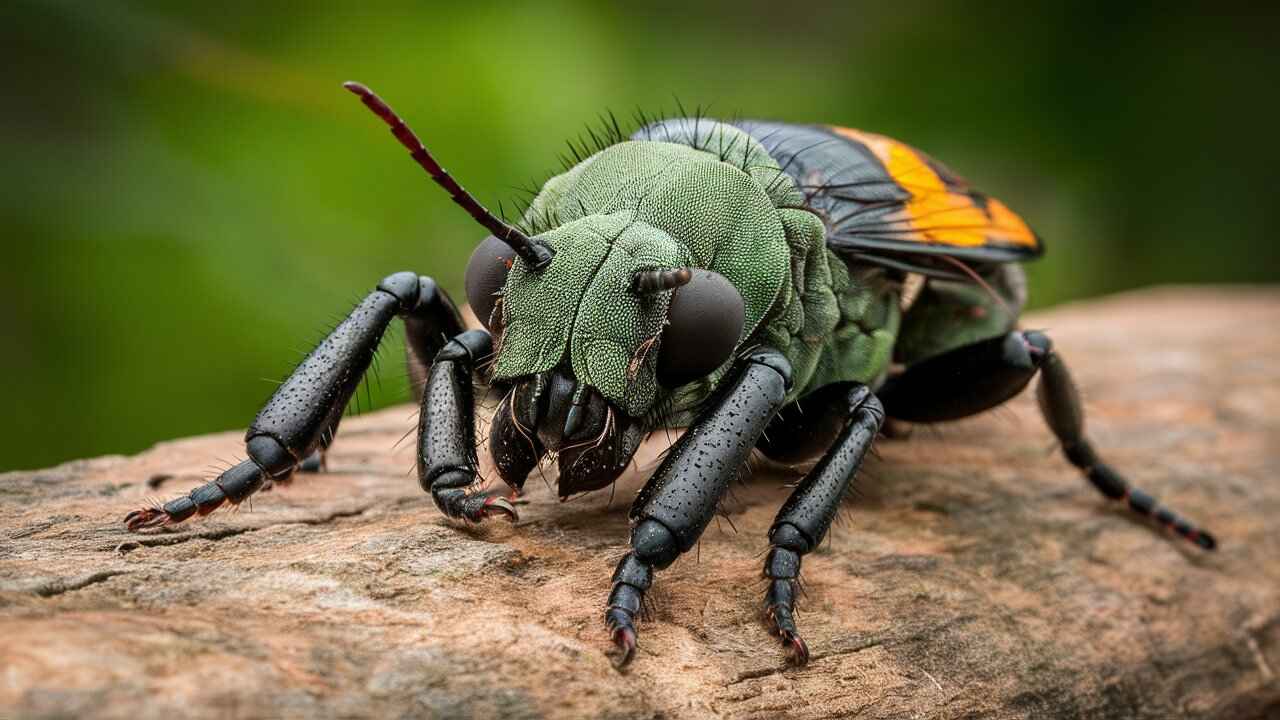Introduction: Unraveling the Mystery
Have you ever halted to ponder, does insects sleep? It’s an inquisitive thought, right? We see creepy crawlies buzzing around, slithering all over, but what happens when they require to rest? This article will jump profoundly into the world of creepy crawlies and their rest propensities, or need thereof. Let’s investigate this captivating point together and reveal what science has to say around the resting designs of our modest, six-legged friends.
What Precisely is Sleep?
To get it if insects sleep, we to begin with require to know what rest is. Rest is a characteristic state of rest characterized by decreased movement and responsiveness. In people and creatures, rest is significant for wellbeing and working, permitting the body and intellect to recuperate and restore. But does this apply to insects? Can these minor animals close down and rest in the same way we do? This essential address sets the arrangement for our exploration.
The Science of Rest in Animals
Sleep isn’t a human thing. Numerous creatures, from warm blooded animals to fowls and indeed angels, require rest. They have particular rest cycles that offer assistance to them to rest and revive. These cycles are pivotal for keeping up wellbeing and cognitive capacities. But how creepy are crawlies? Does insects Sleep in the same organized way? Understanding rest over diverse species makes a difference. We appreciate the organic required for rest and the different ways it can manifest.
Insect Life systems: A Speedy Overview
Insects are built in an unexpected way from us. They have a straightforward brain and an apprehensive framework that’s spread all through their bodies. This decentralized framework is very not at all like the centralized brain and apprehensive framework in people and other vertebrates. Their brains, frequently called ganglia, control diverse parts of their bodies. This makes considering their rest designs precarious. Not at all like people, creepy crawlies don’t have a central brain that controls rest, which raises curiously questions about how they oversee rest.
Also Checkout: Feel Free Tonic: The Herbal Solution For A Balanced Life |2024
Does Insects Sleep After a Rest Cycle?
Just like us, creepy crawlies have circadian rhythms. These are inside clocks that tell them when to be dynamic and when to rest. A few creepy crawlies are dynamic amid the day (diurnal), whereas others are night owls (nighttime). These designs propose a frame of rest or dormancy that takes after rest. So, does insects sleep? Watching their every day exercises and periods of rest gives us critical clues about their sleep-like behaviors and the natural rhythms that drive them.
What is Torpor?
Insects frequently enter a state called torpor. This is a period of diminished action where they preserve vitality. Amid torpor, creepy crawlies are less responsive to their environment, comparable to how we are when we rest. This state is pivotal for survival, particularly amid unfavorable conditions like extraordinary temperatures or shortage of nourishment. Torpor can be seen as a sleep-like state, but it’s more almost vitality preservation than the remedial forms we relate with rest in humans.
Signs of Rest in Insects
Scientists have observed behaviors in creepy crawlies that seem like rest. For occasion, natural product flies and bees appear periods of stability where they appear to be resting. Amid these times, they are less responsive to outside jolts, which is a classic sign of rest. These perceptions are vital since they prove that creepy crawlies do, in fact, have sleep-like states. The address of insects sleep can be somewhat replied by these behavioral signs that closely mirror rest in higher animals.
How insects ‘Sleep’ Differently
Insects don’t have long rest periods like people. Instep, they take brief, visit rests all through the day and night. These brief rest periods are sufficient to keep them working and alarm. Their resting designs are impacted by their environment and action levels. This interesting way of resting makes a difference when they remain alert and survive in their ever-changing living spaces. Understanding these contrasts is key to completely getting a handle on how insects sleep and how their rest varies in a general sense from ours.
Environmental Impacts on Creepy crawly Rest
Factors like temperature and season influence how insects sleep. In colder months, numerous creepy crawlies enter torpidity, a long rest period to survive the cold. This state is associated with hibernation in warm blooded animals and is basic for their survival. Natural signals such as light, temperature, and accessibility of nourishment play a noteworthy part in deciding when and how long insects sleep. These impacts offer assistance to understand why replying does insects sleep includes looking at more than fair their science but moreover their ecology.

Why Rest is Critical for Insects
Rest is significant for an insect’s survival. It makes a difference when they prepare data, keep in mind things, and remain solid. Fair like in people, rest permits their bodies to repair and keep up imperative capacities. Insects that don’t get sufficient rest regularly appear signs of stretch and impeded working, driving to diminished survival rates. This emphasizes the significance of rest and proposes that, yes, does insects sleep is an address with a critical reply: rest is imperative for their well-being and efficiency.
Case Consider: Rest in Natural product Flies
Fruit flies are a prime illustration when examining does insects sleep. They have clear periods of rest that are fundamental for their wellbeing. Inquisition has appeared that natural product flies require these rest periods to work legitimately. Need of rest influences their capacity to learn, keep in mind, and indeed impacts their by and large wellbeing. These rest periods, which reflect rest, give basic experiences into how creepy crawlies oversee their need for downtime and recovery.
Case Consider: Rest in Honeybees
Honeybees moreover appear sleep-like. They rest basically at night and require these rest periods to perform complex errands like scavenging and exploring. Need of rest influences their capacity to work proficiently and can indeed affect the wellbeing of the whole hive. Watching honeybees makes a difference researchers get the social and personal perspectives of resting in creepy crawlies, strengthening the thought that does insects sleep is not a fair interest but a vital angle of their biology.
Case Consider: Rest in Ants
Ants take brief rests all through the day and night. These rest periods offer assistance to keep up their vitality levels and perform their obligations in the colony. Ants’ rest designs are adjusted to their social structure and natural requests. This behavior highlights the significance of replying does insects’ sleep. The rest ants take might appear inconsequential, but they are basic for the colony’s general efficiency and survival.
Comparing Insects Sleep to Human Sleep
When we compare creepy crawly rest to human rest, we see both likenesses and contrasts. Both creepy crawlies and people have periods of rest where they are less responsive and preserve vitality. Be that as it may, the structure, length, and designs of rest can change altogether. Insects’ rest is more divided and affected by natural variables, whereas human rest is longer and more solidified. This comparison sheds light on the broader viewpoints of rest, emphasizing how differing rest procedures are among distinctive species.
Common Myths Around Insects Sleep
There are numerous myths about creepy crawly rest. A few individuals accept creepy crawlies that don’t require rest, but inquire about whether they do rest. Adjusting these misguided judgments makes a difference as our superior gets insects to sleep. For illustration, the myth that all creepy crawlies are continually dynamic is debunked by watching their rest periods. Understanding the truth behind these myths makes a difference in increasing in value the complexity of creepy crawly science and the significance of their rest periods.

How Researchers Think about Insects Sleep
Studying creepy crawly rest includes watching their behavior and brain action. Propels in innovation, like high-resolution imaging and hereditary devices, have made it less demanding to consider these modest animals. Researchers utilize different strategies to screen action levels, brain signals, and reactions to jolts. These strategies are pivotal in replying does insects sleep and have given noteworthy bits of knowledge into the resting propensities and needs of creepy crawlies, clearing the way for more nitty gritty and nuanced studies.
The Future of Insects Sleep Research
Future investigate points to reveal the hereditary and atomic components of creepy crawly rest. This might lead to unused bug control strategies and bits of knowledge into human rest disarranged. Understanding does insects sleep not as it fulfills logical interest but too has down to earth applications. For occasion, knowing how a brother’s rest might offer assistance creates superior control procedures. Additionally, considering rest at an atomic level in creepy crawlies might uncover essential forms appropriate to higher creatures, counting humans.
Conclusion: What We’ve Learned
So, does insects sleep ? The reply is yes, but not in the same way people do. Creepy crawlies have interesting rest periods that are pivotal for their survival. Their rest can be brief and visit, adjusted to their environment and way of life. Understanding these rest propensities not as it were fulfills our interest but too gives profitable bits of knowledge into the nature of rest. These bits of knowledge offer assistance to appreciate the differences of life and the different ways diverse animals meet their requirement for rest.
FAQs
Do all insects sleep?
Not all insects sleep in the conventional sense, but most have periods of rest that are basic for their survival.
How do researchers know if an insect is sleeping?
Scientists watch behavioral changes like fixed status and diminished responsiveness to decide if an insect is resting.
What happens if insects do not rest?
Lack of rest can disable an insect’s capacities, driving it to stretch and diminished survival rates.
Are there insects that do not require sleep?
Most insects sleep require a few shapes of rest, in spite of the fact that the term and design change among species.
How does understanding insects sleep offer assistance to humans?
Studying insect sleep can give experiences into rest components and help in creating medications for rest disorganization.
Also Read: What Is Core Sleep? Your Guide To Enhanced Sleep Quality |2024






